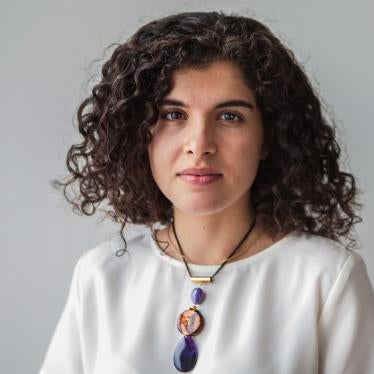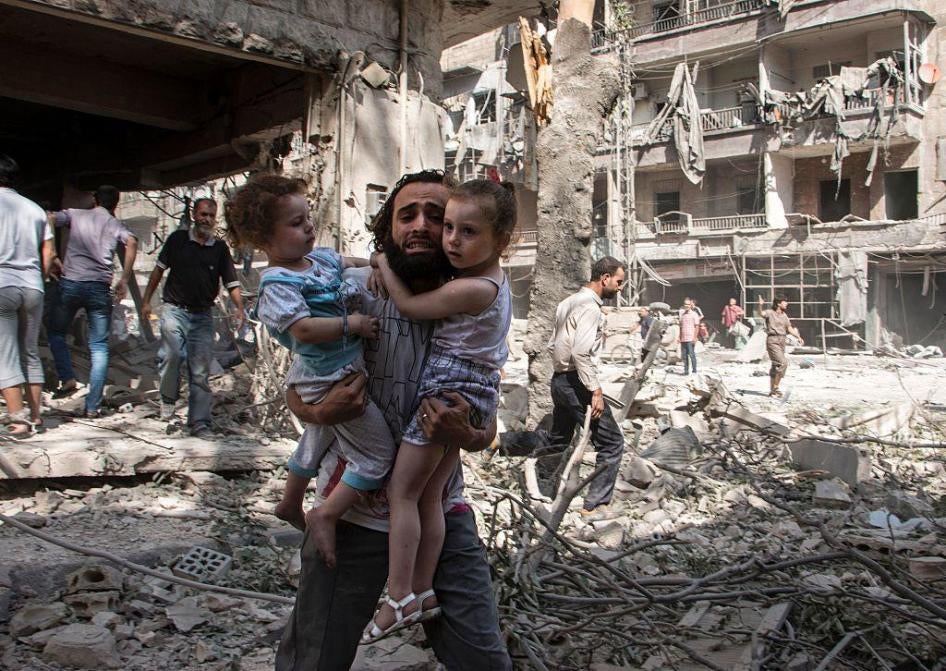‘They will kill us all,” “Ahmad,” a Syrian aid worker, told me last month, referring to the many armed parties to the Syrian conflict.
We were talking about Idlib, a province in northwest Syria that is home to around 2 million people, about half of whom are displaced, and is mostly under the control of Hay’et Tahrir al-Sham (HTS), widely acknowledged to be affiliated with al-Qaeda. Ahmad is from Idlib and had seen the province go through everything from airstrikes, to chemical attacks, to suicide bombers – a microcosm of the violence that was the Syrian conflict. Still, he believed the worst was yet to come.
There have been announcements that Russia, Iran, and Turkey will be making progress on a de-escalation zone in Idlib as part of the Syria negotiations taking place in Astana, Kazakhstan this week. But Ahmad’s concerns about the area where he is operating highlight the fear that over the past six years of the Syrian conflict, the urgent need to protect civilians has been side-lined in most of the international negotiations. The series of de-escalation agreements aimed at securing peace have unfortunately been no exception.
The talks in Astana have been the most ambitious to date. Russia has brought on board two of the key outside military actors in Syria – Turkey and Iran – to participate.
In May, the Astana process produced an agreement to create four de-escalation zones – in the northern part of Homs, Idlib, East Ghouta, and southern Syria. The agreement is still being worked out, but may have been partially successful at decreasing the intensity of fighting in Syria.
A top Russian general, Colonel-General Sergey Rudskoi, told the media that this round of talks in Astana will make progress on the final “de-escalation zone” in Idlib, and Turkish President Recep Tayyip Erdogan believes the Astana negotiations will set the stage for political talks in Geneva.
Similar promises have been made in previous rounds, but little progress has been made in protecting Idlib’s civilians. And these de-escalation zones have not been tied to any progress on key human rights priorities such as the issue of detainees and the disappeared, Earlier rounds of talks reportedly discussed a potential working group for the exchange of detained and imprisoned people, but ultimately no concrete progress was made. Ahmad’s pessimism is tied to the complicated situation in Idlib, where civilians are caught between the Syrian government’s desire to retake the province and the rise of the al-Qaeda-linked group, which now has the firmest control over the province. This makes it a threat to be neutralized in the eyes of many, including the United States and Turkey. Back in May, participants at the Astana meeting explicitly noted that attacks on terrorist groups, including HTS, would be excluded from the cease-fire.
Meanwhile the number of civilians in the area continues to rise. A series of locally brokered agreements and high intensity battles elsewhere in Syria have resulted in large numbers of displaced civilians making their way to Idlib. In July 2017 alone, upward of 24,000 displaced persons arrived there from numerous locations.
Aid workers we spoke to warned that Idlib is close to reaching capacity in terms of its ability to cope with incoming waves of displaced people. HTS has solidified control over the area and a source has reported concerns that HTS fighters have interfered with aid deliveries.
The risks are compounded by border closures by Turkey and an increased deployment of Turkish military on the borders, a potential signal from Turkey that it is unwilling to take in any more Syrians.
“Whatever happens, no one will be able to leave Idlib,” Ahmad told me, describing the limited options for people to flee.
The Astana participants should take this complexity into account as they negotiate the fate of Idlib and possibly broker a de-escalation agreement Turkey and all the parties to the conflict should allow civilians fearing for their lives in Idlib to flee the fighting, and enter Turkey, if they want to. Any such agreement should not serve as a cover to forcibly return refugees to Syria.
For the Astana process to make real progress on protecting civilians, negotiations need to tackle core human rights issues underlying the conflict, including those detained and disappeared by the Syrian government. The Astana backers – Russia, Turkey and Iran – and others who have a vested interest in seeing the Syrian conflict end should urge the groups they back to reveal the fate of people they are holding and allow independent monitors into their detention facilities. For Astana to be successful, it should pave the way for an independent institution in charge of investigating the fate and whereabouts of the disappeared, as well as unidentified human remains and mass graves in Syria.
There is no doubt that most people would like to see an end to the Syrian conflict, which has claimed so many lives. However, any solution that does not address the core issues underlying the conflict is a band-aid on a gaping wound that is bound to start bleeding again.










